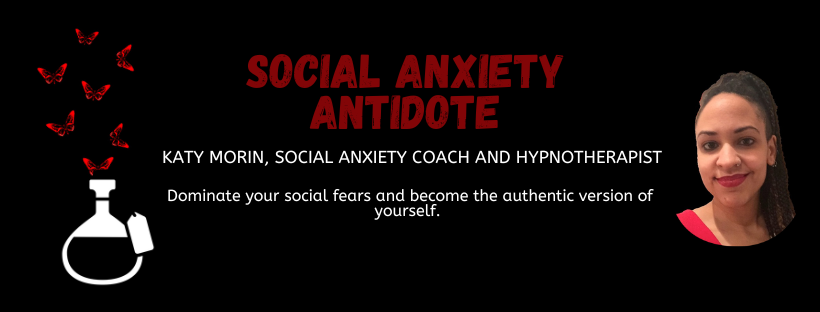If you're plagued by social anxiety, you know that from time to time it can be difficult to speak up or get your point across. In fact, it may be hard for you to even get a word in edgewise. But there are a few tricks of the trade you can use when it seems like no one wants to hear what you have to say!
Here's how:
Speak up and try using a louder voice.
You might think that no one notices when you don't speak up, but the people around you will definitely notice if they have nothing better to do than listen attentively. Loud advocates often get their way.
Write it down, and read it out loud to yourself so you don't forget any of your ideas.
Hearing your own voice is particularly helpful for people with social anxiety because they tend to overthink their thoughts to death. It's best if both the speaker and listener hear their own words in an attempt to decrease anxiety production.
When in doubt, ask the question out loud!
This is a great trick that doesn't seem like much but can be very effective in getting people talking about important issues that you want to discuss.
Use humor
Humor is another great tool for getting people talking about what you want them to talk about (relatively). If you're funny, people will accept your humor as more valuable than their own. You can use humor to defuse the tension that often builds up during social situations.
Be aware of your tone
When asking questions about important issues, make sure your tone is serious but not upset. When people hear that tone, the first thing they think is that something is wrong with you, so it's best not to let them think that. So reassess your tone and re-direct your voice.
Ask questions
People will be more inclined to listen when you ask them a question or make a statement that shows you care about what they say. So when the conversation turns from neutral territory into a serious debate, try making eye contact and nodding at the same time until the person is willing to slow down for a moment and think about how best to respond.
Make eye contact
Make eye contact with people who are talking to you and listen closely to their answers. The eyes are windows into the soul, so if someone is looking at you or really listening, they want to help solve whatever problem you're facing.
Be specific
This tip is a little more technical but no less useful: make it a habit to be as specific as possible when describing your goals. If you say you want them to discuss the importance of global warming, they won't know what you're talking about. Instead, simply say something like: "I want to let everyone know about my concern about global warming." By getting more specific - and making it clear that the issue is very important - you'll increase your chances of faster results.
Be present
Try staying in the moment and not worrying so much about what other people think and feel and how they will respond. Instead, focus on your own needs and take action accordingly.
Be authentic
When asking others for help or guidance, make sure to be authentic. People are more likely to take you seriously if they feel your pain is genuine.
Be patient
Be patient with yourself and know that your social anxiety isn't a disease or a choice; it's just how you learn about people and situations and adjust as needed. Over time, you'll grow more comfortable with yourself and others.
In conclusion, the more you practice these tips, the easier it will be for you to get your point across without triggering too much rejection or negative reaction. And eventually, you'll start seeing that many people - even those who don't want to hear what you have to say - are willing to listen and understand your problem!
If you need more help being seen and heard, check out my free Assertiveness Training 101, which is part of my free course, 'First Steps to Freedom: Starting Your Social Anxiety Recovery'.
If you need more help being seen and heard, check out my free Assertiveness Training 101, which is part of my free course, 'First Steps to Freedom: Starting Your Social Anxiety Recovery'.
This free course has been specially designed to provide you with various free resources to help you understand, manage and overcome social anxiety.

